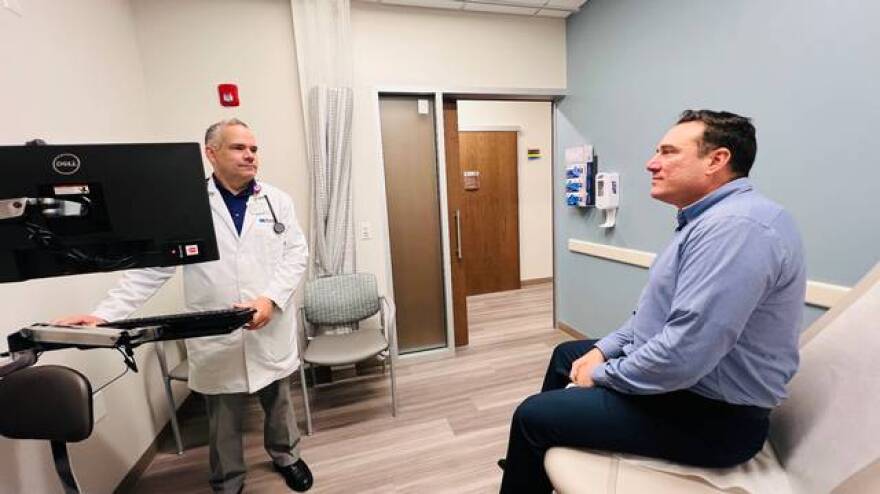Florida Senate President Kathleen Passidomo is making access to healthcare her top priority for the legislative session. She’s outlined plans for bills to expand the state’s healthcare workforce and to encourage innovation in the healthcare field. And, Passidomo says she expects lawmakers to file at least a dozen other measures that could fit into her Live Healthy initiative.
Passidomo says the primary goal of Live Healthy is making sure Floridians have access to the care they need.
READ MORE: Florida opts out of around $250 million in food aid
"In Florida today, we do not have enough healthcare personnel to take care of the Floridians that are living here. Many of you have probably tried to get in to see a doctor and you have to get your appointment a year in advance," Passisomo says.
That problem is expected to get worse. In December, the legislature’s policy analysts estimated that by 2035 the state will only have enough doctors to meet about 77% of the expected demand. And healthcare experts say similar shortages are expected across the industry. Florida will need more nurses, more home health aides, and more mental health professionals. Passidomo has tapped Sen. Colleen Burton (R-Lakeland) to carry one of the flagship bills in the package aimed at tackling those shortages.
Florida wants to grow its own healthcare workforce
“One of the things that we’re going to do among others is put programs in place and initiatives in place to grow our own here in Florida," Burton says.
The measure earmarks money to create 700 new residency programs. The bill also smooths the way for doctors from other countries to work in Florida, and creates incentives to try to keep Florida med school students in state after they graduate. A legislative analysis says right now only about 75% of doctors who attend medical school in Florida complete their residency in state.
Solving access to care through innovation
Another piece of Live Healthy is a measure by Sen. Gayle Harrell (R-Stuart) that creates a loan program aimed at encouraging innovation within the healthcare system. Her bill would form a council to dole out $75 million a year, for the next decade.
“What it really does—it takes the innovation in our communities using our entrepreneurial system in this country and the wonderful ideas of our business community and our healthcare community and brings it all together to use innovation," Harrell says. "How can we incentivize innovation in the healthcare system?”
Passidomo says an example of that might be creating new technology to help nursing homes in rural communities better monitor patients so they can make the most of the staff available to them.
Democrats have raised the concerns that Passidomo’s package does not include expanding access to Medicaid. Medicaid is a state and federally funded insurance program for low income people. Florida is one of less than a dozen states that hasn’t taken advantage of the federal government’s Medicaid expansion. Jacksonville Democratic Senator Tracie Davis asks, why not now?
“We know that not expanding Medicaid, we are leaving as a state about $4-billion dollars on the table, so if we’re talking workforce roles, how do we not include the expansion of Medicaid here in what we’re trying to do," Davis asked committee members as the measure received its first hearing.
Florida is among the top five states with the most uninsured people according to the U.S. Census Bureau. But Passidomo says her concern is that people can’t get access to care—regardless of whether or how they’re insured.
“ If we don’t have enough people to see you, it’s not going to make a difference. Our whole goal is to make sure that every member of our state has the opportunity to have effective, efficient and economic healthcare," Passidomo says.
Passidomo says nobody will be turned away from receiving life saving care at one of the state’s hospitals, but part of her initiative includes diverting people who aren’t having an emergency to local clinics where she hopes they can establish what she calls a “medical home.” The package aims to increase access to free and low-income treatment centers by expanding eligibility. Burton and Harell’s measures have already cleared their first committee stops. Passidomo expects to see more healthcare measures coming as the session begins.
Copyright 2024 WFSU






